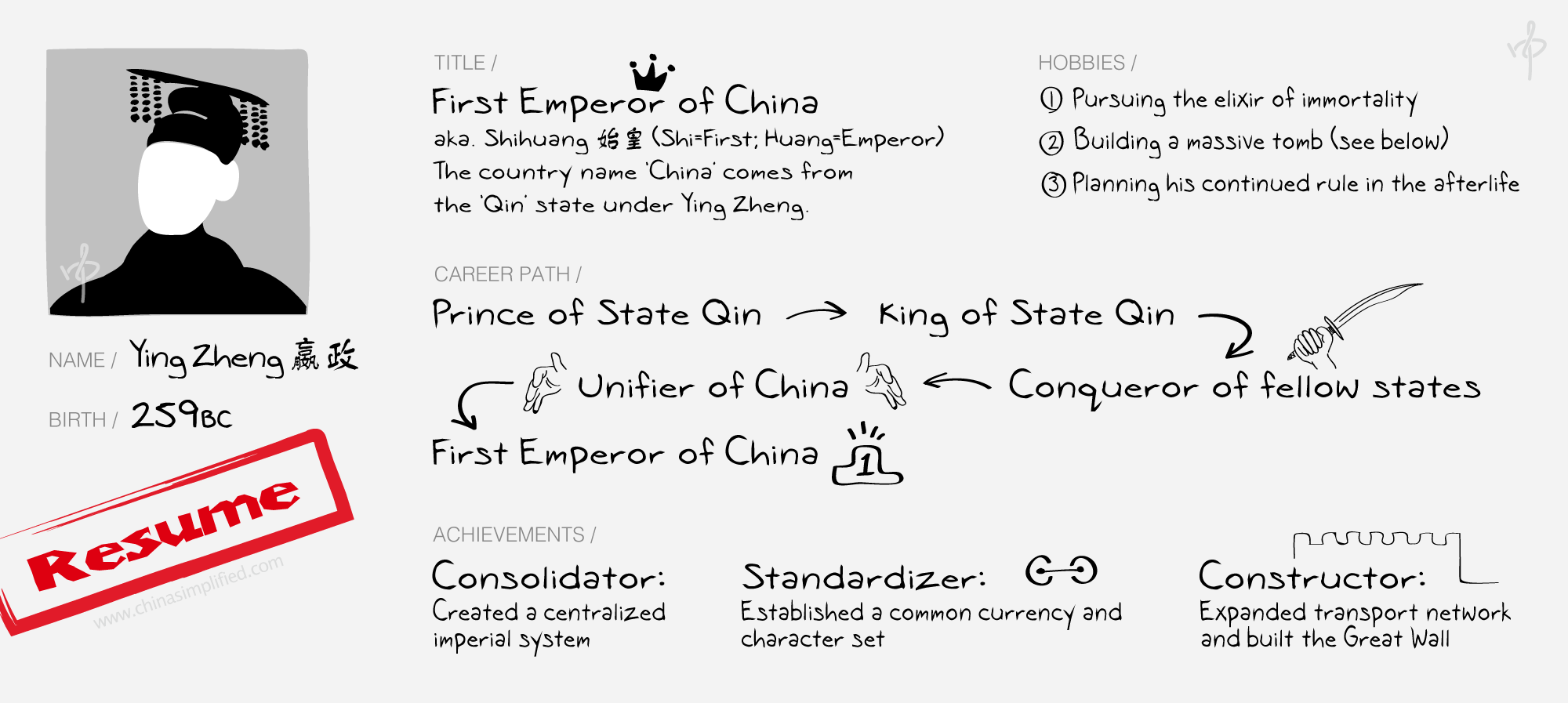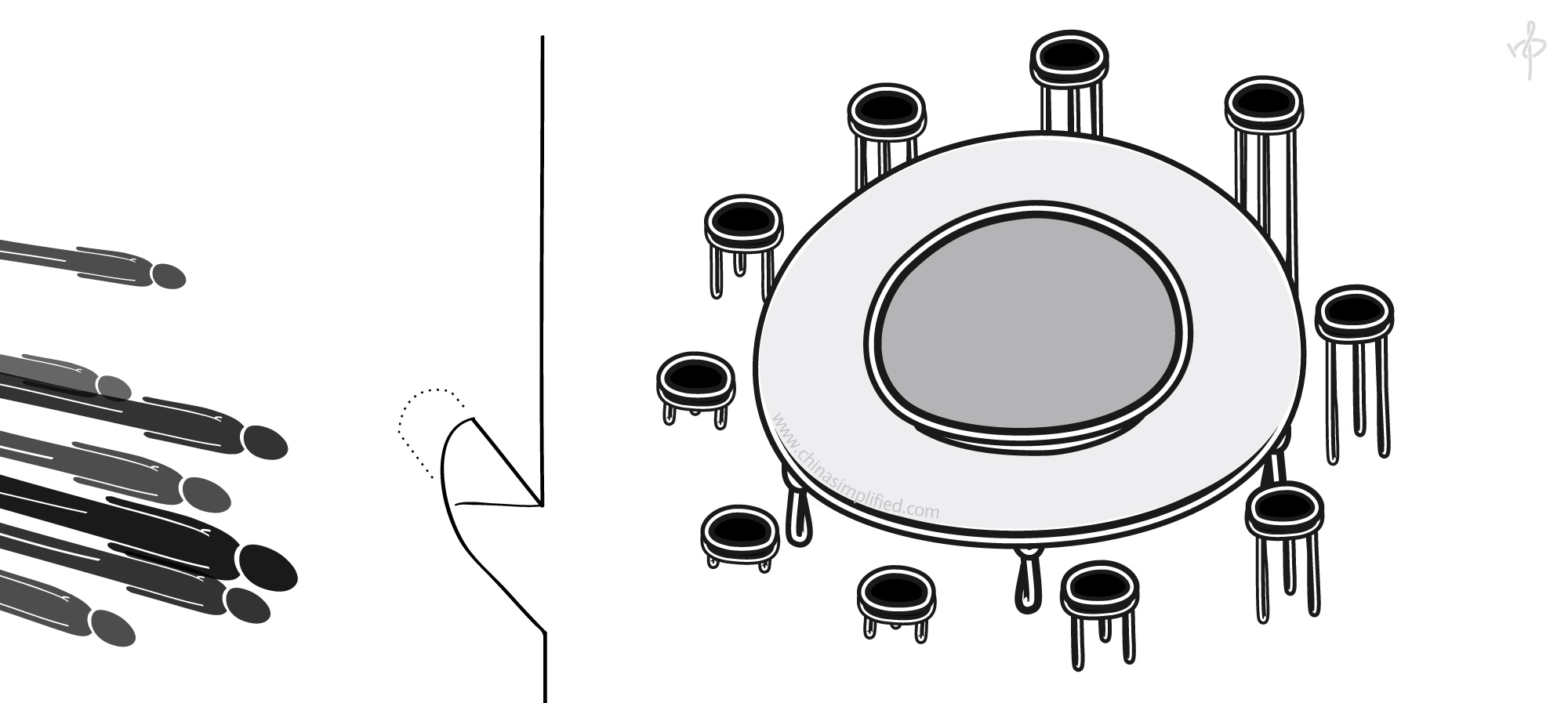Ying Zheng came into power in the western state of Qin against a stronger alliance of seven feudal states to the east. Through a series of clever maneuvers, he conquered and united the other states under one banner. Ying Zheng then declared himself the First Emperor of the Qin Dynasty, a title he created in 221BC. Not that it was all parades and peony petals wafting from the sky. Far from it. The hard work was just starting!
In just eleven years as emperor, Qin Shihuang accomplished the impossible, mobilizing hundreds of thousands of soldiers, peasants & slaves to build the Great Wall of China and construct a network of roads comparable to that of the Roman Empire hundreds of years later. In the process, he established lasting standards for nearly everything and created an administrative system of governance and centralized ruling philosophy still in use today.
Meanwhile to protect his precarious rule, he melted down all the unlicensed weapons, burned nearly all the books and buried all the intellectuals who might bad-mouth him. The few remaining Confucian and other “Zi Crew” followers went underground to avoid being put there.
Despite being deified as the “Son of Heaven,” his rapid ascent and heavy handed approach earned him plenty of enemies. His pursuit of an elixir of immortality wasn’t going too well either, so he redirected his vast resources towards continuing his reign in the afterlife.
Emperor Qin Shihuang demanded a massive army, fully equipped and ready to roll on the other side. His fighting force had to be capable of vanquishing all future enemies and prevent his being ambushed when he entered the spirit world. Moreover, this stone army needed to be safely ensconced in a enormous burial chamber containing a miniature version of his entire empire, complete with flowing rivers of poisonous mercury and booby traps to dispatch any tomb raiders who dared encroach on his underground kingdom. Many concubines and servants were recruited to make final preparations in his tomb until, oops, the doors closed behind them.
The above-ground transition from first to second emperor was much less successful, in fact, it was a disaster of Macbethian proportions. Ying Zheng intended his oldest son Fusu to become emperor, declared it in his will. The eunuch Zhao Gao and his plotters feared the independent and strong-willed Fusu would banish them from the palace, so they forged a new will declaring the youngest son Huhai as emperor. A bloodbath ensued, leaving all the rightful heirs dead. Four years and two emperors later the Qin Dynasty was over, yielding to the first peasant uprising to overthrow a feudal dynasty.
China’s Shihuang and Egypt’s King Tut – Whose crib was the baddest?

* Farmers discovered the tomb in 1974 while digging a well. The tomb’s three pits opened in 1979 and have since welcomed over 70 million visitors.
**The Terracotta Warriors have toured 80 cities in 40 countries for over 20 million museum goers. Meanwhile the exact location of Shihuang’s final resting place remains a mystery.









